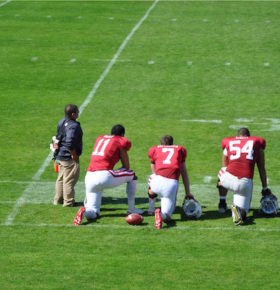
 As we were looking for a new Research Manager, I was giving a lot of thought to what makes a good team in experiential marketing analytics. How does one define “good team?” Is a good team one that is successful? Productive? Cohesive? And, how does one go about building a good team, fostering it and supporting it?
As we were looking for a new Research Manager, I was giving a lot of thought to what makes a good team in experiential marketing analytics. How does one define “good team?” Is a good team one that is successful? Productive? Cohesive? And, how does one go about building a good team, fostering it and supporting it?
A good team is one that is well balanced – productive and cohesive. And I think having a good team is reflected in that team’s overall success. Let’s face it: none of us are perfect. So, when you put imperfect people together in a group, it’s unlikely you’ll achieve perfection. Yet, perfection is what so many of us strive for. How ironic.
When you put together a group of the right people, you create opportunity to learn and grow in a supportive environment, to leverage your strengths and develop your weak areas, all the while working towards a common goal.
Being a part of a team allows you to be a part of something bigger than yourself. That’s true of any team: sports, business, or personal. In sports, the right team wins games, which turn into winning seasons and championships, which garner both recognition and an increased sense of accountability.
The same concept can be applied in a business setting, specifically, our experiential marketing analytics team. As part of that team, we’re each accountable for our actions or inactions. Recognition comes from “winning” in the form of repeat or increased business. (Not to mention the intangible benefits, such as increased confidence in our abilities as individuals and as a team.) Success, however it is defined, becomes a direct reflection of our strength. One might argue that a team is only as good as the players on it and their combined efforts over a period of time.
As was I sifting through a plethora of resumes, I often read the words “team player.” I found myself pondering what that phrase really means. We are all team players in our own minds. But, is that a guarantee we’ll be part of a good team?
Here are the criteria I consider when determining whether someone is a team player.
- The ability to work independently and collaboratively, and the ability to discern which you should do and when
- A willingness to make mistakes and learn from them, as well as accept that others on your team will make mistakes also
- An open mind about how things should or could be done
- A willingness to listen to others’ viewpoints
- Ability to hold oneself and others accountable to fulfilling responsibilities
- An honest, forthright attitude that allows for transparency in the workplace
- A drive to do your best
When all of these criteria are met, I believe we’ve identified someone who can contribute in a meaningful way to what I consider to be an excellent team at PortMA.
